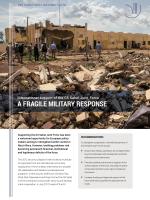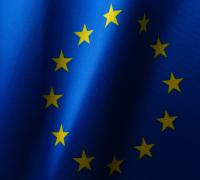Denmark’s military engagements in the Sahel
Amidst numerous military interventions (including UN, EU, France and US), the security situation is dramatically deteriorating – not only in Mali, but also spreading throughout the Sahel region. And as insecurity spreads, dissatisfaction in the region grows. Indeed, protestors calling on MINUSMA and French forces to leave is but one indication of an increasing disappointment with international interveners. As Denmark is preparing to send troops to Mali to support Operation Barkhane and renew its contribution to MINUSMA, deteriorating security and growing dissatisfaction are but two of the manifold challenges that characterize the current situation in Mali and in the Sahel more broadly.
Zooming in on some of the key intervention actors (EU, MINUSMA, US and France) DIIS in collaboration with Center for Military Studies (CMS), hosted a closed policy seminar on international military interventions in the Sahel taking place on October 21, 2019 in Copenhagen to discuss some key challenges and prospective avenues for international security and defence collaboration in the Sahel.
Some main take-aways from the seminar included that:
- Future Danish engagements will continue to stress a comprehensive and integrated approach where development and security efforts go hand in hand, addressing root causes of conflict and with a strengthened focus on climate change in the region.
- International military actors are currently subject of a range of rumors and disinformation campaigns aiming at delegitimizing the Western powers vis-à-vis local populations.
- Fighting terrorism is no longer a top priority of US, thus we are likely going in to see a diminishing role of US engagements in the future. Meanwhile, the EU is strengthening its military and civilian engagements through strengthened cooperation with regional actors contributing to an increased space of maneuvering but also enhanced competition between regional bodies.
- Finally, more could be done to improve collaboration and communication between the different missions also in exchanging intelligence.
Among the participants were national and international academic scholars, representatives from various Danish ministries and the Royal Danish Army, representation from the EU as well as ambassadors from the Sahel region.
The policy seminar, consisting of two Panel Sessions and a subsequent discussion, was introduced by the organisers, Signe Marie Cold-Ravnkilde (Danish Institute for International Studies) and Katja Lindskov Jacobsen (Centre for Military Studies) with presentations from Ambassador Julie Pruzan-Jørgensen (Special Envoy to the Sahel), Yvan Guichaoua (Brussels School of International Studies), Stephen Tankel (American University) Adam Sandor (University of Ottawa), Signe Marie Cold-Ravnkilde (Danish Institute for International Studies), Birgitte Markussen (Director, Deputy Managing Director Africa at EEAS), Eliza Lopez Lucia (Université Libre de Bruxelles) and Edoardo Baldaro (University of Naples) and Michael Anker Lollesgaard (Chief of the Royal Danish Army).
The presentations were followed by discussion amongst participants under Chatham House rules.
DIIS Experts





